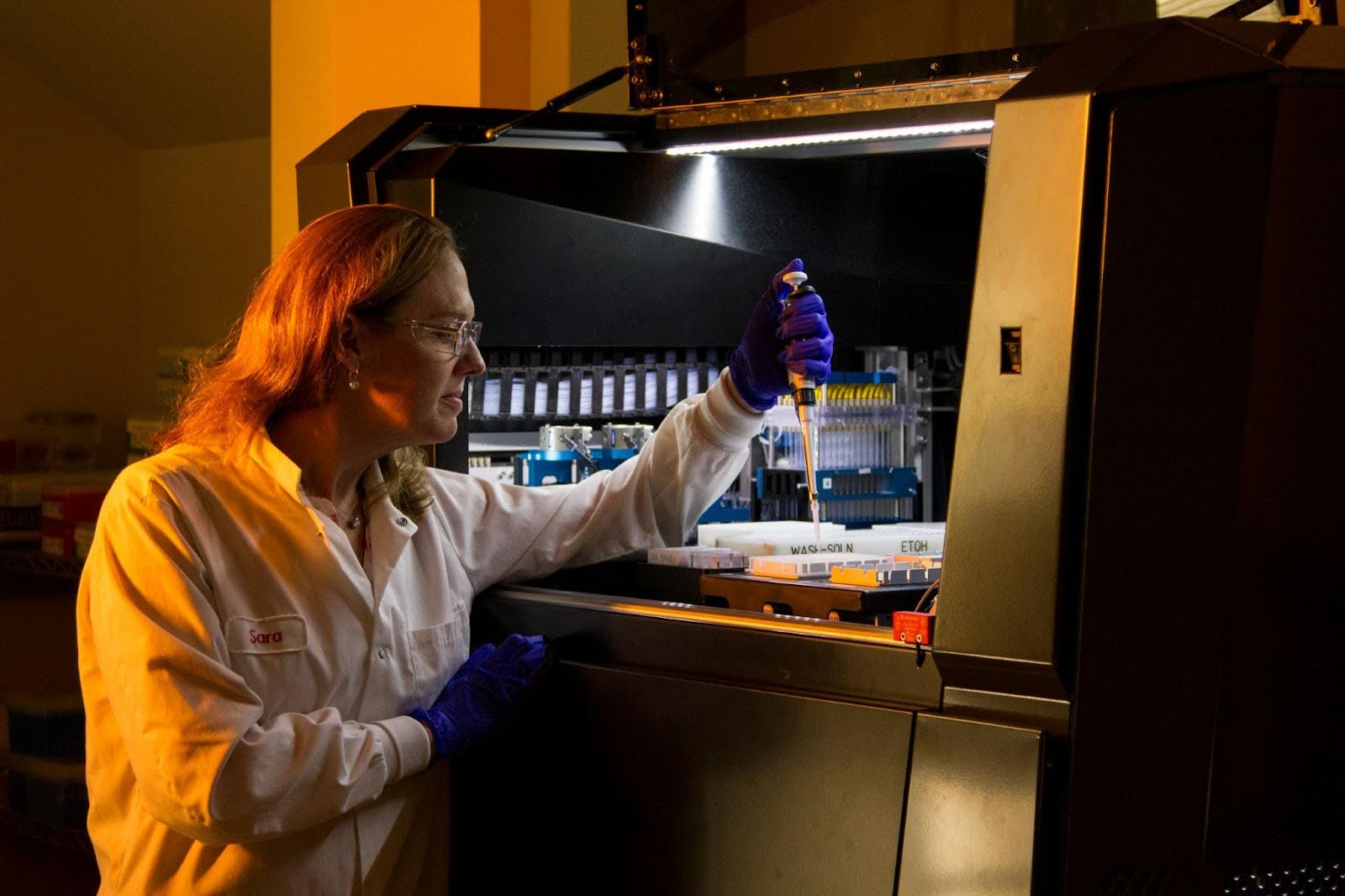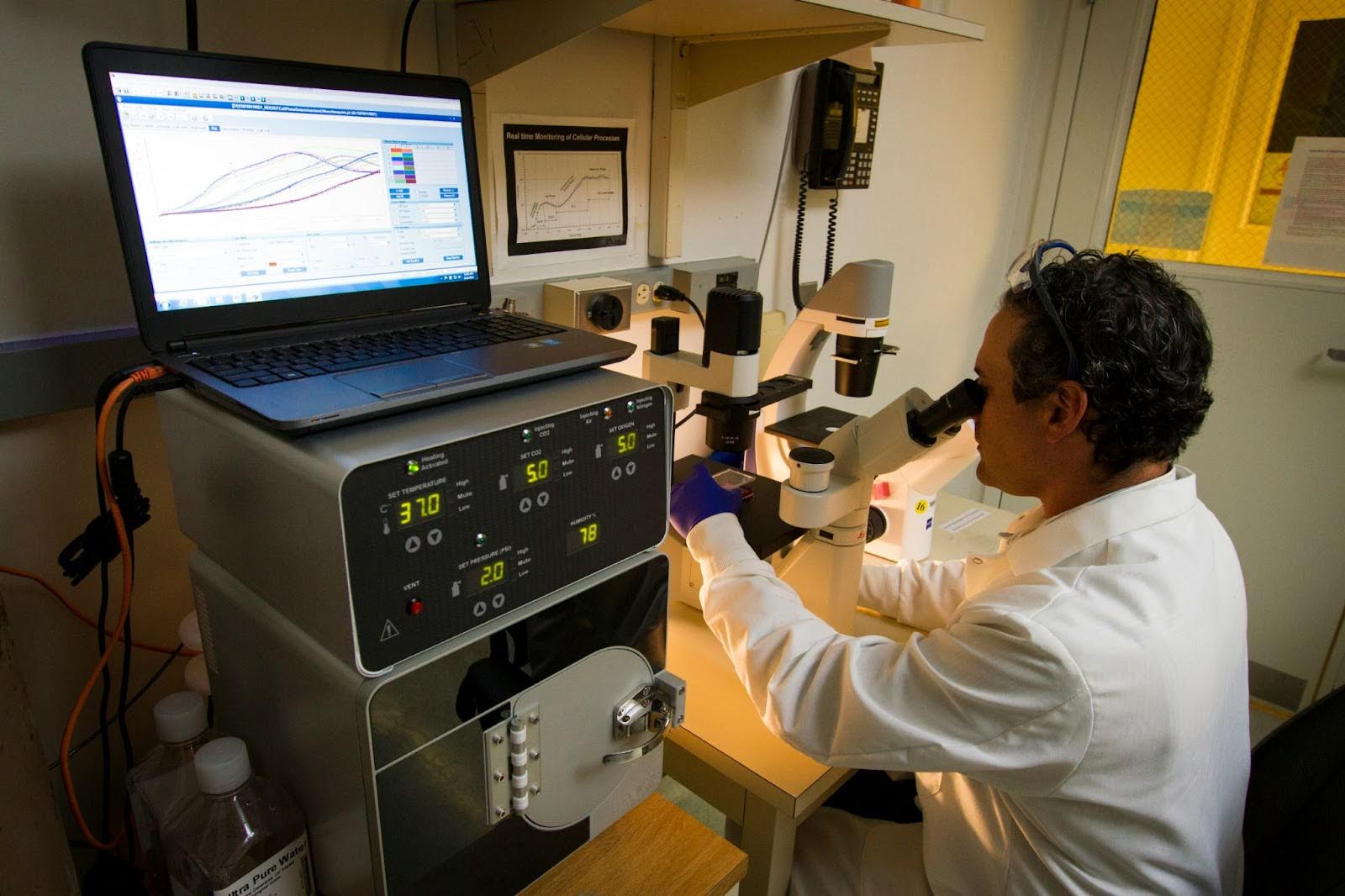Key Takeaways:
- Pancreatic cancer can be hereditary. The disease is associated with genetic mutations, including BRCA1 and BRCA2, as well as syndromes such as Lynch and FAMMM, also linked to other cancer types.
- Not all cases are attributed to genetics. Lifestyle and environmental factors, including smoking and chemical exposure, significantly influence your overall pancreatic cancer risk.
- There are preventative measures for pancreatic cancer. Reducing risk involves quitting smoking, moderating alcohol, managing diabetes, and considering genetic testing and counseling if there's a family history.
Pancreatic cancer is a devastating disease. It’s often diagnosed too late, when survival rates are lower and treatment is more challenging than it may have been at earlier stages. However, there’s a question that can help lower your risk: Is pancreatic cancer hereditary? Knowing whether the disease runs in your family is essential to pancreatic cancer prevention. While genetics can’t predict the future, they’re worth considering when it comes to your health, as they play a role in the development of cancer and other diseases.
We’re here to help. Reducing your cancer risk starts with Catch. Through personalized assessments covering 21 major cancers, including pancreatic, and over 500 validated risk factors, we help you build a tailored action plan to take control. So, is pancreatic cancer hereditary? Let’s break down what we know about pancreatic cancer’s genetic links and who’s most at risk so that you can make informed decisions about your health.

Is Pancreatic Cancer Hereditary?
While most cases of pancreatic cancer are sporadic, a percentage can indeed be attributed to genetic factors. Specifically, around 10%1 of pancreatic cancers are hereditary. Acknowledging the complexities in the relationship between genetics and pancreatic cancer is essential. Here’s a little bit about what we know:
- Family History: You are at a greater risk if you have two or more first-degree relatives who have had pancreatic cancer or a first-degree relative who developed pancreatic cancer before the age of 50.
- Genetic Mutations: Certain genetic mutations and syndromes can increase your risk of pancreatic cancer. For example, gene mutations on BRCA1, BRCA2, PALB2 or CDKN2A, Familial Atypical Multiple Mole Melanoma (FAMMM) syndrome, Lynch syndrome, and Peutz-Jeghers syndrome.
- Hereditary Pancreatitis: Adults with Hereditary pancreatitis, a genetic condition, are at an increased risk for type 1 diabetes and pancreatic cancer.
Remember, assessing your pancreatic cancer risk goes beyond genetics alone. Environmental factors and lifestyle choices, which we will discuss shortly, can also play a significant role.

Take Control Of Your Cancer Risk With Catch
As you read about the hereditary risks of pancreatic cancer, you might be wondering, “What’s my own risk? Could this be in my family’s story?” At Catch, we dive deep into over 500 validated risk factors across 21 major cancers, including pancreatic cancer, to give you a personalized risk assessment unique to your DNA.
Why wait for answers when you can act now? Here’s what you get with Catch:
- Personalized Risk Assessment: A detailed breakdown of your cancer risk based on science, not guesswork.
- Tailored Action Plan: Clear, actionable steps to lower your risk, updated as your life changes.
- Peace of Mind: Knowledge is power. Understand your risks and take control of your health narrative.
Reducing your cancer risk starts here. Join other Catch members today and get the clarity you deserve. It’s time to write a healthier next chapter together.
Why Knowing Your Risk Matters
Pancreatic cancer remains one of the most challenging forms of cancer to detect and treat. The pancreas is located deep inside of your body, which means that tumors cannot be felt or seen by healthcare professionals during routine physical examinations. Other tests and screening tools, like MRIs, are instead used to find the cancer. In addition to being difficult to spot without specialized screening tests, the disease often shows no symptoms in the early stages.
With all of that in mind, knowing your personal risk of pancreatic cancer matters because early detection can save your life. If it’s found in the localized stage (before it has spread), the survival rate2 for pancreatic cancer is 44%. However, that number drops to 3% if it reaches the distant stage and has spread to other parts of the body.
To properly evaluate personal risk, talk to your doctor and consider genetic testing if you have a family history of pancreatic cancer. Preventive strategies, including regular screenings and proactive lifestyle adjustments, can be beneficial for those with a higher inherited risk of pancreatic cancer. Finding gene mutations during genetic testing could mean you need screenings at a younger age.
How To Find Genetic Testing For Pancreatic Cancer
Some high-risk centers and clinics can help you get genetic testing. A healthcare provider, such as a primary care physician, can often refer you for genetic testing services. Suppose the family member who has or has had pancreatic cancer can get genetic testing. In that case, it’s strongly recommended that they do so, so that genetic mutations others in the family might share can be pinpointed.
In some cases, genetic testing can be expensive, particularly if it is not covered by insurance. Those with a strong family history (if not a personal history of the disease) are the most likely to get it covered by their healthcare plan. Though it can be an emotional process, tne of benefits of genetic testing is that it is non-invasive.
Reducing Your Risk Of Pancreatic Cancer
Some risk factors for pancreatic cancer are within your control, whereas others are not. While you can’t rewrite your DNA, erase family history, or get rid of some other risk factors, like your age, there are tangible steps to lower your odds of developing pancreatic cancer:
- Smoking: A significant risk factor, smoking contributes to about 25% of pancreatic cancer cases. Eliminate this habit to decrease your risk and promote better health.
- Dietary Choices: A diet high in red and processed meats could raise one's chances of developing pancreatic cancer. Conversely, consuming a diet abundant in fruits and vegetables may offer some degree of protection.
- Chronic Pancreatitis: This condition, often related to heavy alcohol use or gallstones, leads to long-term inflammation of the pancreas and can potentially escalate to cancer after years of tissue damage.
- Heavy Alcohol Consumption: Drinking alcohol excessively is linked to a higher risk of pancreatic cancer. It's best to limit intake to moderate levels.
- Diabetes: Particularly concerning when recently diagnosed, Type 2 diabetes presents a complex but well-documented relationship with pancreatic cancer, sometimes even resulting from the cancer itself.
- Chemical Exposure at Work: Certain occupations involve exposure to harmful chemicals over long periods, such as those found in metalworking industries or pesticides, which can increase pancreatic cancer risk.
These risk factors are based on robust evidence from authoritative sources, such as the American Cancer Society[3]. By adjusting lifestyle choices and being aware of environmental exposures, individuals can take proactive steps to minimize their risk of developing pancreatic cancer.

Final Thoughts
Does pancreatic cancer run in families? It can. If you’ve got a family history or other risk factors, like chronic pancreatitis or diabetes, you’re right to be concerned. Talking with your doctor about screening protocols, considering genetic testing, and taking precautions like making lifestyle changes can be beneficial.
At Catch, we give you the tools to face cancer risk head-on. Our personalized risk assessments dive deep, analyzing over 500 validated risk factors across 21 major cancers, including pancreatic. You’ll get a tailored action plan that’s built for you and can evolve as your life does.
Whether it’s lifestyle tweaks, screenings, or genetic counseling, we’ve got your back.
Don’t wait for the odds to catch up. Become a Catch member for $5/month so that you can take your first steps toward cancer prevention, get assessed, and start rewriting your health story now.
Read also:
Frequently Asked Questions About Pancreatic Cancer and Hereditary Risk
Is pancreatic cancer genetic?
Like other cancers, pancreatic cancer can be genetic. While most cases are sporadic, about 10% of pancreatic cancers are linked to inherited genetic mutations. These mutations can be passed through families, increasing the risk for certain individuals.
What is hereditary pancreatitis, and its role in pancreatic cancer?
Hereditary pancreatitis is a rare genetic condition causing recurrent inflammation of the pancreas. It significantly raises the risk of developing pancreatic cancer, often at a younger age than the general population. Mutations in genes like PRSS1 are involved most of the time.
Is there a pancreatic cancer gene?
There’s no single pancreatic cancer gene. Instead, multiple genetic mutations can increase your risk. Inherited differences in BRCA1, BRCA2, and PALB2 are some examples of genetic mutations that can contribute to your risk of pancreatic cancer development.
Are there hereditary syndromes linked to pancreatic cancer?
Yes, several hereditary syndromes are linked to pancreatic cancer, including Lynch syndrome, familial adenomatous polyposis (FAP), and Peutz-Jeghers syndrome. These syndromes often increase risks for multiple cancers, making comprehensive risk evaluation critical.
Does hereditary pancreatic cancer present differently than sporadic cases?
Hereditary pancreatic cancer often strikes at a younger age than sporadic cases and may be associated with other cancers due to underlying syndromes. However, the warning signs of the disease, like abdominal pain, jaundice, or weight loss, remain the same. Since early stages usually do not come with symptoms, being mindful of your risk factors is crucial.
Can lifestyle modify your risk of pancreatic cancer?
Absolutely. While you can’t change risk factors like your genes, lifestyle choices such as avoiding smoking and limiting alcohol can reduce your overall risk of pancreatic cancer. Diet, environmental exposures, and exercise also play a role in cancer prevention.
What are the screening options for individuals at a high risk of pancreatic cancer?
Pancreatic cancer screening options for high-risk individuals may include endoscopic ultrasound (EUS), MRI, or CT scans, often starting earlier than for the general population. However, there’s no universal screening protocol, so decisions should be personalized.
If my mom has pancreatic cancer, will I get it?
If your mom has pancreatic cancer, it does not mean that you will get it for sure. However, family history is a risk factor, so staying vigilant and informing your doctor if a member of your family has had cancer is critical.
Is there a specific age I should start getting screened for pancreatic cancer?
Your ideal pancreatic cancer screening age depends on individual risk factors. For example, family history and specific genetic mutations. For many high-risk individuals, screening begins 10 years before the earliest pancreatic cancer diagnosis in the family, often around age 40 (or younger, for those with certain syndromes, or for those who have possible symptoms of the disease).
Sources:
- Pancreatic Cancer Action Network. (n.d.). Genetics and Hereditary Factors of Pancreatic Cancer. https://pancan.org/facing-pancreatic-cancer/about-pancreatic-cancer/risk-factors/genetic-hereditary/
- American Cancer Society (n.d.). Surival Rates for Pancreatic Cancer. https://www.cancer.org/cancer/types/pancreatic-cancer/detection-diagnosis-staging/survival-rates.html
- American Cancer Society (n.d.). Pancreatic Cancer Risk Factors. https://www.cancer.org/cancer/types/pancreatic-cancer/causes-risks-prevention/risk-factors.html










.svg)



